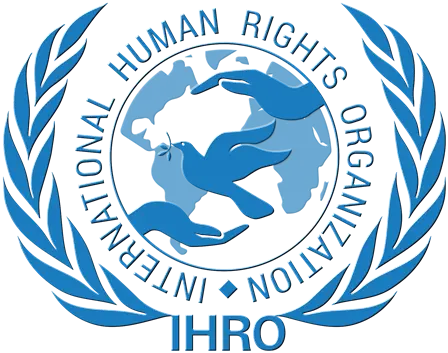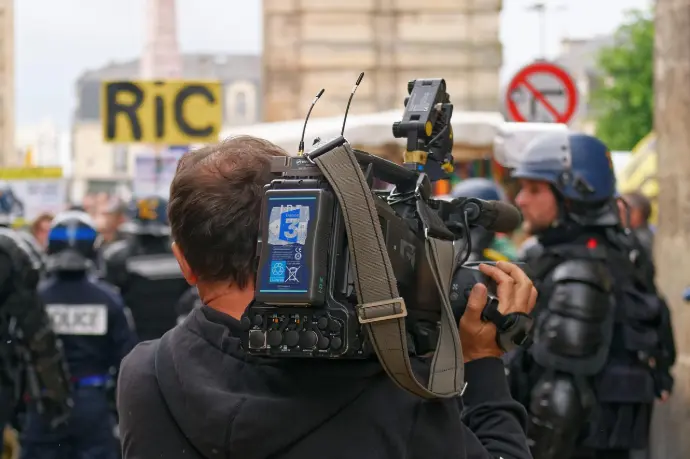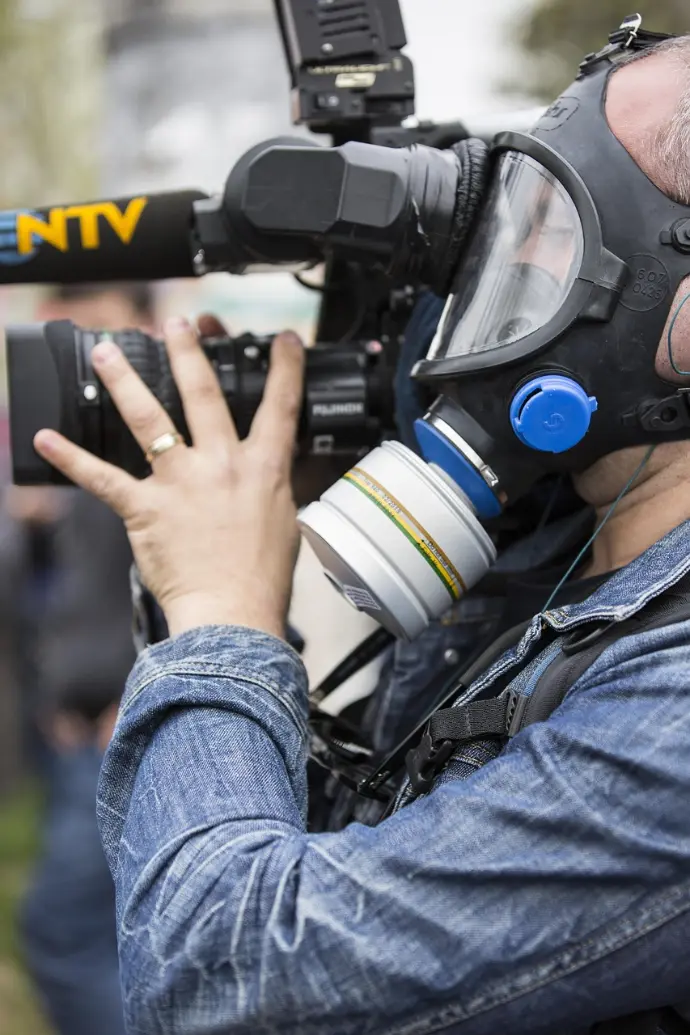The Guardians of Information: The Role of Journalists in the Protection of Human Rights
Article 19: Freedom of opinion and expression of the Universal Declaration of Human Rights (UDHR), we all have the right to form our own opinions and to express and share them freely.

In this article, entitled "The Guardians of Information: The Role of Journalists in the Protection of Human Rights," we will analyze the significant role that journalists play in promoting freedom of expression and defending basic rights worldwide. Prepare to delve into an in-depth and illuminating study that will allow you to understand the vitality of this topic. Continue reading and learn how journalists become true heroes in the defense of human rights!
Introduction
The role of journalists in the protection of human rights is extremely valuable in contemporary society. They have an obligation to report accurately, objectively, and in a timely manner on situations that affect the fundamental rights of people everywhere in the world. Their work is essential to exposing human rights violations and promoting accountability and social justice.
Journalists, through their reporting, act as defenders of freedom of expression and the right to receive information, which are essential for the respect and protection of human rights globally. Their ability to investigate, analyze, and distribute truthful information on situations of human rights violations helps strengthen democracy and empower civil society to demand justice and respect for fundamental rights.
It is essential to recognize the critical role that journalists play as guardians of information, as well as the direct impact their work has on the promotion and protection of human rights worldwide.
The connection between journalism and human rights has deep roots in history, as journalists have played an indispensable role in exposing injustices and human rights abuses. Since the beginning of newspapers and publications, journalism has been a means of informing the public about situations of oppression, discrimination, and violations of fundamental rights.
Exposing journalism has been fundamental in the battle against authoritarian governments, slavery, racial discrimination, gender-based violence, and other issues that impact human rights. Through the dissemination of courageous and accurate information, journalists have helped raise social awareness and fuel movements for equality, justice, and respect for human dignity.
Journalism's record in protecting human rights reminds us how crucial its work is in today's society, where press freedom and the ethical practice of journalism are essential to safeguarding basic rights.
The consequences of journalism in the defense of human rights worldwide are clear. Journalists, through detailed investigations, articles, and coverage in areas of conflict or rights violations, help bring to light situations that might otherwise remain hidden or ignored.
The work of journalists not only keeps the population informed but also puts pressure on governments, international organizations, and relevant actors to make effective decisions in the defense and promotion of human rights. Investigative reporting, bold journalistic approaches, and the monitoring of cases of rights violations raise awareness and mobilize civil society and the international community to demand justice and respect for fundamental rights.
The influence of journalism in the defense of human rights worldwide is considerable, as their work not only educates but also promotes effective actions in the defense of fundamental rights throughout the world.

The Role of Reporters as Protectors of Information
Within the scope of human rights protection around the world, reporters play a key role in disseminating accurate and relevant information. Ethics in journalism is essential here, as those working in the media have an obligation to report fairly, truthfully, and in a manner that respects human rights.
Ethics in human rights journalism involves a commitment to truth, clarity in presenting reality, and consideration for the dignity of each person. Reporters need to be aware of the impact their work can have on the community, so it is vital that they follow firm ethical principles in their work.
Furthermore, protecting human rights through ethical journalism includes protecting sources, respecting the privacy of those involved in stories, and highlighting any violations of fundamental rights through responsible and dedicated coverage.
Reporters have a duty to be critical and courageous voices in highlighting human rights violations. Their work requires thorough investigation, challenging authorities, and exposing situations of injustice, discrimination, or abuse of power that affect people's dignity and basic rights.
This duty requires a high level of commitment and courage, as reporters often face dangerous situations, censorship, and retaliation from governments or other actors seeking to hide the truth. However, despite these obstacles, reporters defending human rights continue to play a vital role in the pursuit of justice and accountability.
The work of journalists in denouncing human rights violations not only helps bring injustice to light but can also have a significant impact on raising public awareness and mobilizing society in defense of fundamental rights.
In the digital age, the use of technology and social media has become a powerful tool for sharing relevant human rights information. Journalists can use these platforms to amplify the voices of victims, document cases of human rights violations, and raise awareness about urgent global issues.
The reach of social platforms allows human rights stories to cross boundaries and reach diverse audiences around the world, helping to raise awareness about the importance of protecting essential rights. However, the use of these tools entails the obligation to verify the authenticity of information and to practice responsible journalism that prevents the dissemination of false or biased news.
In this context, the role of journalists as custodians of information is strengthened by the ability of digital technologies to generate a global impact, fostering empathy, solidarity, and action for the protection of human rights worldwide.
Investigative journalism plays a crucial role in the protection of human rights worldwide. Through exhaustive investigation, journalists can expose human rights violations, uncover government corruption, and give a voice to ignored communities. This type of journalism goes beyond breaking news, as it involves a deep search for the truth, often in the face of significant challenges and dangers.
Investigative journalists delve into complicated and sensitive topics, using rigorous methods to gather data, validate sources, and present their findings accurately and contextually. Their work not only involves reporting but also helps raise awareness, foster accountability, and push for important changes in policies and practices that impact human rights. By revealing the truth and uncovering injustices, investigative journalists become steadfast advocates for justice and human dignity.
In a global environment where human rights face constant challenges, investigative journalism becomes a vital tool for uncovering the truth, promoting transparency, and helping to protect the fundamental rights of all people. Its work not only impacts the local level but also transcends borders, raising awareness and pushing for transformations at the international level.
Challenges and Risks for Journalists in the Defense of Human Rights
In many nations, those who report on human rights defense face state repression and press censorship. Authoritarian governments and dictatorial regimes frequently attempt to silence critical journalists, limiting their ability to report on human rights violations and expose government corruption. This repression can take forms such as the imposition of restrictive laws, judicial harassment, intimidation, the closure of independent media outlets, and the arbitrary detention of those who report.
State censorship and repression are serious threats to freedom of expression and to the work of journalists fighting for human rights. These actions seek to weaken the work of journalists who try to expose and denounce abuses and violations, creating a climate of fear and self-censorship that hinders free and reliable reporting. It is essential that the international community and organizations defending press freedom firmly denounce and condemn these repressive practices, and that support be offered to journalists who suffer this type of persecution.
In defending human rights, journalists play a vital role by exposing violations and abuses globally. However, this work entails significant risks, as many face threats, harassment, and violence for their work. It is crucial to establish robust legal protection at both the national and international levels to ensure the safety of journalists reporting on sensitive human rights issues.
Legal protection encompasses the implementation and enforcement of laws that safeguard press freedom and the practice of responsible journalism. It is also important to have effective mechanisms in place to investigate and punish attacks on journalists, as well as to prevent future acts of violence. At the international level, solidarity between countries and organizations is key to putting pressure on governments that do not respect press freedom and providing support to journalists at risk. Global cooperation in the protection of journalists is an essential part of defending human rights worldwide.
Furthermore, global cooperation among journalists is essential for addressing shared challenges and promoting freedom of expression worldwide. Through support networks and collaborations, journalists can strengthen their resilience and support each other in the face of danger and reprisals. Unity among media workers also helps raise awareness of human rights violations, which can lead to international pressure and condemnation, thereby having a positive impact on the protection of journalists and the defense of human rights in general.

Cooperation between Journalists and Human Rights Groups
Cooperation between journalists and human rights groups is crucial to exposing and denouncing human rights violations worldwide. This strategic alliance highlights injustices, abuses, and acts of violence that might otherwise remain hidden. Journalists, through their reporting, have the ability to give a voice to those who suffer and expose the realities they face, while human rights organizations offer verified information and specialized analysis that support journalistic investigations.
This collaboration is not limited to sharing information but can also include identifying cases, conducting joint investigations, and presenting evidence to judicial or international authorities. Furthermore, collaborative work can help generate public and political pressure to demand justice and accountability in cases of human rights violations.
The union between journalists and human rights groups is a clear example of how joint efforts can have a significant impact on the promotion and protection of human rights globally. This strategic cooperation is vital to addressing current challenges in this area and ensuring that violations are reported and addressed with the attention they require.
Collaboration between journalists and human rights organizations has a direct impact on advancing justice and accountability. By joining forces, greater pressure is placed on those who commit human rights violations, both nationally and internationally. Public exposure of cases of abuse and violence, supported by meticulous investigations and documentation, can lead to prosecutions, official inquiries, and the implementation of measures to punish those responsible.
Furthermore, collaboration between journalists and human rights defenders helps educate the public and opinion leaders about the importance of addressing these situations. The dissemination of accurate information and detailed analysis of events raise awareness and mobilize civil society in its demand for justice and respect for human rights. Furthermore, this collaborative work can influence the decisions of governments and international organizations, promoting policies and actions that protect and ensure the fundamental rights of all people.
Cooperation between reporters and human rights groups has an important impact on promoting justice and accountability, helping to protect human rights worldwide.
There are many successful instances of collaboration in defending human rights through journalism, which have made a real difference in exposing human rights abuses and promoting justice. Specific cases include reports that have revealed corruption, abuse of authority, discrimination, and institutional violence, among others.
In many of these examples, the work of journalists has been complemented by the efforts of human rights organizations, which have provided reliable information, legal assistance, and support for political influence. This collaboration has led to concrete actions, such as launching official investigations, bringing perpetrators to justice, implementing reparations for victims, and establishing reforms to prevent future abuses.
These success stories demonstrate the positive impact of collaboration between journalists and human rights organizations and emphasize the need to continue strengthening these partnerships to address current human rights challenges.
Conclusions
Journalists play a fundamental role in the protection of human rights globally. Their work of investigating, reporting, and disseminating information contributes to exposing violations and promoting justice and accountability.
It is essential to recognize the challenges and risks faced by journalists committed to defending human rights. Many of them are subject to threats, intimidation, and even violence, which endangers their safety and freedom of expression.
Given this reality, there is a call for solidarity and protection for journalists who risk their lives in the pursuit of the truth. The international community, governments, and human rights organizations have a responsibility to guarantee a safe environment for journalists and to safeguard the safety of those who carry out this valuable work.

 IHRO NEWS
IHRO NEWS